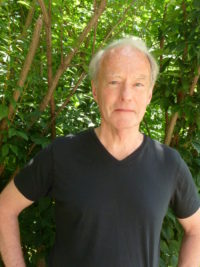Not exactly country, yet a traditional storyteller, a Rhodes scholar and a former Army Captain, an Oxford "egghead" in love with romantic poetry, a sensitive athlete, a risk-taker who gave up a teaching position at West Point for a janitor's job in Nashville to try his hand at songwriting, a patriot with a dissenter's heart, he is an unusual man, to put it mildly. A gambler. A man who knows that heaven and hell are born together and that the body and soul cannot be divorced, that all art is incarnational and meant to be about ecstasy and misery, not the middle normal ground where people measure out their lives in coffee spoons. He's always wanted to tell what he knew, come what may, as he sings in To Beat the Devil:
I
was born a lonely singer, and I'm bound to die the same,
But I've got to feed the hunger in my soul.
And if I never have a nickel, I won't ever die ashamed.
'Cos I don't believe that no-one wants to know.
What do people want to know ? A bit here and there, I guess, but not too much, not the secrets of our souls. Not the truth about their government's killers, the lies that drive a Billy Dee to drugs and death and the hypocritical fears of cops and people who wish to squelch the truths of the desperate ones for fear that they might reveal secrets best buried with the bodies. Secrets not about the dead but the living.
There are only a handful of songwriters with the artistic gift of soul sympathy to write verses like the following, and Kris has done it again and again over fifty years:
Billy
Dee was seventeen when he turned twenty-one
Fooling with some foolish things he could've left alone
But he had to try to satisfy a thirst he couldn't name
Driven toward the darkness by the devils in his veins
All around the honky-tonks, searching for a sign
Gettin' by on gettin' high on women, words and wine
Some folks called him crazy, Lord, and others called him free
But we just called us lucky for the love of Billy Dee
Like William Blake, one of Kristofferson's mentors - "Can I see another's woe/And not be in sorrow too?/Can I see another's grief/And not seek for kind relief?" - Billy Dee captures in rollicking sound more truth about addiction than a thousand self-important editorials about drugs.
Kristofferson joins with Dylan Thomas, the Welsh bard, another wild man with an exquisite sense for the music of language and the married themes of youth and age, sex and death, love and loss, home and the search, always the search:
The
force that through the green fuse drives the flower
Drives my green age; that blasts the roots of trees
Is my destroyer.
And I am dumb to tell the crooked rose
My youth is bent by the same wintry fever.
Although most of his songs lack overt political content, such concerns are scattered throughout his massive oeuvre (nearly 400 songs) where his passion for the victims of America's war machine and his respect for great spiritual heroes like Gandhi, Martin Luther King, and John and Robert Kennedy ring out in very powerful songs that are not well known. Note his use of the word they in They Killed Him, surely not a mistake for such a careful songwriter.
And in The Circle, a song about Bill Clinton killing with a missile an Iraqi artist and her husband and the wounding of her children, his condemnation is powerful as he links it to the disappeared of Argentina in a circle of sorrow. Of course no one is responsible.
"Not
I" said the soldier
"I just follow orders and it was my duty to do my job well"
"Not I" said the leader who ordered the slaughter
"Im saddened it happened, but then, war is hell"
"Not us" said the others who heard of the horror
Turned a cold shoulder on all that was done
In all the confusion a single conclusion
The circle of sorrow has only begun
As everyone knows, songs have a powerful hold on our memories, and sometimes we learn ironic truths about them only years later.
When I was young, my large family, consisting of my parents and seven sisters and me - Bronx kids - would go on vacation for a week in the late summer to a farm called Edgewater. We would pack our clothes in cartons weeks in advance and would load into the car like sardines layered in a can. On the trip north to the Catskill mountains, in our wild excitement we would sing all sorts of happy songs, many from Broadway shows. As we approached the farm, we would go crazy with excitement and sing over and over the repetitive song we had learned somewhere: We're Here Because We're Here Because We're Here. To us it was a song of joy; we had arrived at our Shangri-La, our ideal home, paradise regained. To this day, the name Edgewater is like Proust's madeleine dipped in tea for many of us.
What we didn't know was that the song we were singing was the sardonic song that WW I soldiers sang as they awaited absurd and senseless death in the mud and rat-filled trenches of the war to end all wars. Sardonic words to them and joy to us. They were there because they were there and it was meaningless. We sang it out of joy. So Blakean:
Man was made for joy and woe
(Note: You can view every article as one long page if you sign up as an Advocate Member, or higher).





